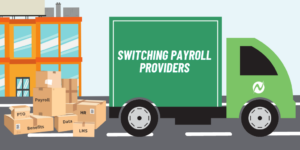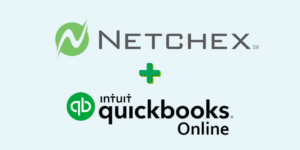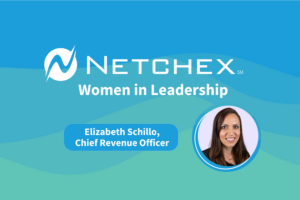Future-Proofing Your Career: Job Skills for Success in the AI Era
Despite a few exaggerated projections, it’s clear that AI and AI skills will have a transformative effect on many industries and career paths. It’s irresponsible for employers to ignore the growing potential and applications of AI, but that doesn’t reduce the importance of human staff. READ: AI + HR: Workplace Uses, Benefits, and Best Practices […]
Read ArticleReducing AI Anxiety and Empowering Workers Through HR Policy
Stories and projections about Artificial Intelligence have taken the workforce on a rollercoaster of emotions. In the era of ChatGPT and AI software, employees see the real-world power of AI in the workplace, even in creative tasks like artwork. But when it comes to AI in general, it is safe to say that feelings are […]
Read ArticleNetchex Women in Leadership: Paige Newcombe, Chief Transformation Officer
March is Women’s History Month. To mark this occasion, the Netchex Diversity, Equity, & Inclusion Council is honoring the many powerful women in leadership at Netchex. In our Netchex Women in Leadership series, we’ll hear from our female leaders about career journeys, challenges, inspirations, and advice. Next up is Paige Newcombe, Chief Transformation Officer. We […]
Read ArticleA Comprehensive Guide to Switching Payroll Providers
I. The importance of improving your payroll process II. Signs that it’s time to switch payroll providers III. Payroll migration: Is it hard to switch payroll providers? IV. When is the best time to switch payroll providers? V. How to choose a new payroll provider VI. Breaking up with your current provider VII. Avoiding common […]
Read ArticleEmployee Engagement: HR Tips to Motivate and Inspire Employees
Employee engagement makes a night-and-day difference in the culture and performance of a company. Work-life balance is impossible when employees feel miserable and unappreciated. When workers are motivated and energized, it’s easier to solve problems. Engaged employees feel like they’re doing a good job and making a difference. According to Gallup’s State of the Global […]
Read ArticleNetchex + QuickBooks: Integration Designed To Help Your Business
Lots of businesses use QuickBooks accounting software, in one form or another. But things are about to change for QuickBooks users. Software developer Intuit recently announced that they will be sunsetting QuickBooks Desktop (QBD) soon. Given the platform’s popularity, this announcement has raised some uncertainty about what companies must do to ensure they are not […]
Read ArticleNetchex Women in Leadership: Elizabeth Schillo, Chief Revenue Officer
March is Women’s History Month. To mark this occasion, the Netchex Diversity, Equity, & Inclusion Council is honoring the many powerful women in leadership at Netchex who keep the ship afloat. In our Netchex Women in Leadership series, we’ll hear from our executives and vice presidents about their career journeys, challenges, inspirations, and advice to […]
Read ArticleThe Future of HR Systems: Embracing Impactful Human Capital (IHC)
In today’s rapidly evolving business landscape, organizations are recognizing the critical role of human capital in driving success. The traditional Human Capital Management (HCM) and Human Resources Information Systems (HRIS) have served their purpose over the years. Now it’s time to move forward—towards Impactful Human Capital Management (IHC). The future of HR systems lies in […]
Read ArticleNetchex Women in Leadership: Kelly Kennedy, VP of Finance
March is Women’s History Month. To mark this occasion, the Netchex Diversity, Equity, & Inclusion Council is honoring the many powerful women in leadership at Netchex who keep the ship afloat. In our Netchex Women in Leadership series, we’ll hear from our executives and vice presidents about their career journeys, challenges, inspirations, and advice to […]
Read ArticleGenerative AI: Unveiling the Language Powerhouse for HR
In the ever-evolving world of HR, where efficiency reigns supreme, small and medium enterprises (SMEs) often grapple with maximizing output while juggling a multitude of tasks. Enter Generative AI, a revolutionary technology poised to transform HR workflows and empower professionals to delve deeper into strategic initiatives. But what exactly is Generative AI, and how does […]
Read ArticlePeople Over Policy: HR’s Vital Role in Employee Engagement
How do you turn your workforce into the best trailblazing problem-solvers in the galaxy? Jean Luc Picard said it best: “Engage!” Employee engagement is more powerful than caffeine, and you can imagine how much your whole office would struggle without coffee. Engagement means feeling connected with the company mission, coworkers, and clients. More than 60% […]
Read ArticleNetchex Women in Leadership: Katie Kennedy, VP of Marketing
March is Women’s History Month. To mark this occasion, the Netchex Diversity, Equity, & Inclusion Council is honoring the many powerful women in leadership at Netchex who keep the ship afloat. In our Netchex Women in Leadership series, we’ll hear from our executives and vice presidents about their career journeys, challenges, inspirations, and advice to […]
Read Article











